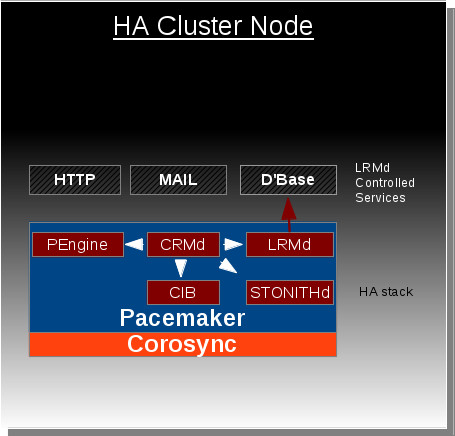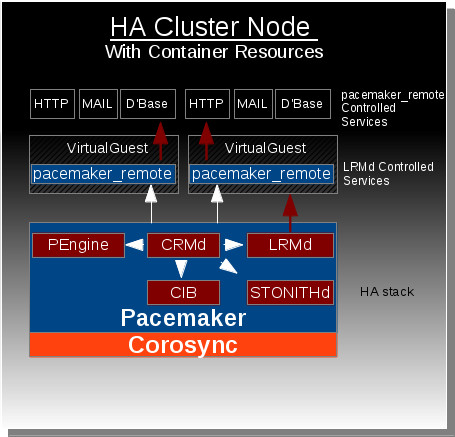| Line 36: | Line 36: | ||
== Benefit to Fedora == | == Benefit to Fedora == | ||
<!-- What is the benefit to the platform? If this is a major capability update, what has changed? If this is a new feature, what capabilities does it bring? Why will Fedora become a better distribution or project because of this feature?--> | <!-- What is the benefit to the platform? If this is a major capability update, what has changed? If this is a new feature, what capabilities does it bring? Why will Fedora become a better distribution or project because of this feature?--> | ||
This feature expands our current high availability functionality to span across both physical bare-metal cluster nodes and the virtual environments that reside within those nodes. Without this feature, there is currently no direct approach for achieving this functionality. | |||
== Scope == | == Scope == | ||
Revision as of 20:53, 25 January 2013
High Availability Container Resources
Summary
The Container Resources feature allows the HA stack (Pacemaker + Corosync) residing on a host machine to extend management of resources into virtual guest instances (KVM/LXC).
Owner
- Name: David Vossel
- Email: <dvossel@redhat.com>
Current status
- Targeted release: Fedora 19
- Last updated: 1-25-2013
- Percentage of completion: 60%
Detailed Description
This feature is in response to the growing desire for high availability functionality to be extended outside of the host into virtual guest instances. Pacemaker is currently capable of managing virtual guests, meaning Pacemaker can start/stop/monitor/migrate virtual guests anywhere in the cluster, but Pacemaker has no ability to manage the resources that live within the virtual guests. At the moment these virtual guests are very much a black box to Pacemaker.
The Container Resources feature changes this by giving Pacemaker the ability to reach into the virtual guests and manage resources in the exact same way resources are managed on the host nodes. Ultimately this gives the HA stack the ability to manage resources across all the nodes in cluster as well as any virtual guests that reside within those cluster nodes.
Benefit to Fedora
This feature expands our current high availability functionality to span across both physical bare-metal cluster nodes and the virtual environments that reside within those nodes. Without this feature, there is currently no direct approach for achieving this functionality.


